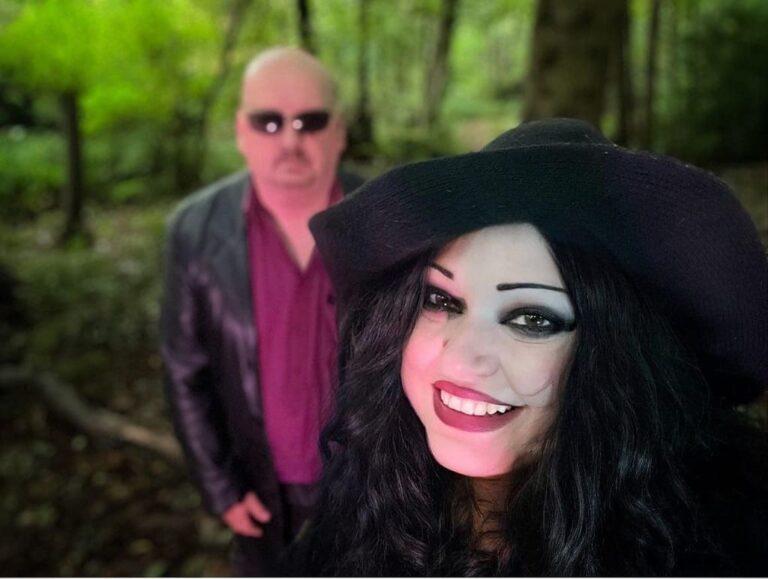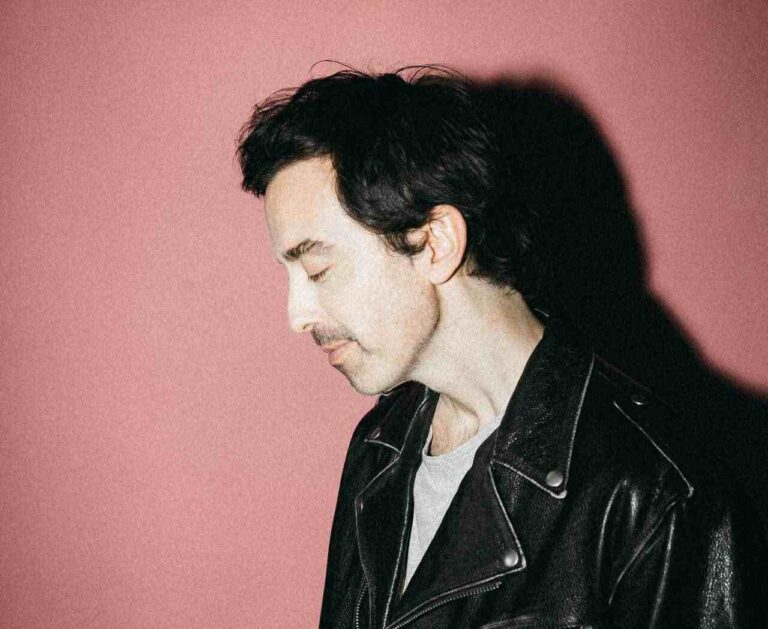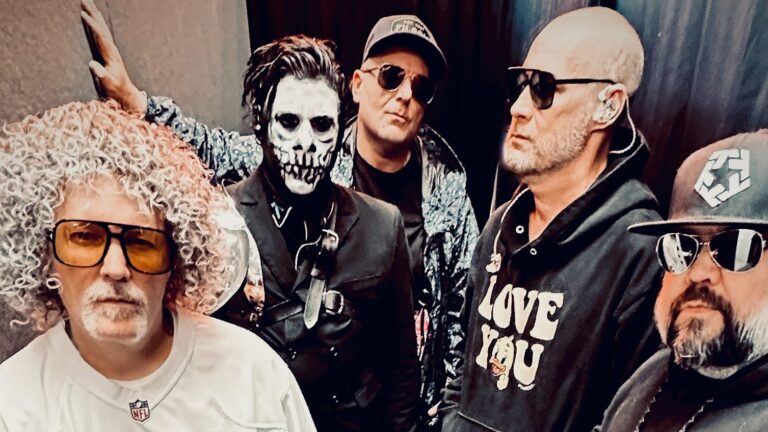Marc Turiaux: come affrontare e vincere lo “stage fright”

Si chiama “stage fright”, in italiano si traduce come “paura del palcoscenico” e come ci dice Marc Turiaux, affligge molti artisti. Ecco cosa ci ha raccontato in proposito il bravo batterista dell’art/rock prog rock band RPWL…
Ogni volta che la gente mi chiede che effetto mi faccia suonare in una band, andare in tour ed esibirmi in un sacco di concerti la mia risposta è sempre che so quanto sono fortunato di poterlo fare perché far parte di un gruppo è sempre stato il mio sogno dal primo momento in cui ho preso in mano uno strumento. Mi rendo conto che non è stato altro che un insieme di ragioni oltre il mio controllo e e di pura fortuna che mi hanno portato fino a qui.
Ci sono tante cose che apprezzo nel mio lavoro ma probabilmente una di quelle che mi piace di più è poter andare in tour. L’idea di recarmi in tutti quei posti diversi ed incontrare tanta gente diversa essendo sempre consapevole che la nostra musica è già arrivata lì prima di noi. Questo mi ha sempre affascinato.
Stare on stage: un bizzarro mix di feelings
Uno potrebbe pensare che data questa mia attitudine suonare di fronte al pubblico per me non sia altro che una grande gioia. Ebbene la risposta è si’ e no perché come molti altri musicisti anch’io soffro di stage fright (ndr: paura del palcoscenico). Certo non sono un caso severo ma sento sempre quella pressione interna prima di uno show. Sebbene la mia relazione con lo stage sia piuttosto double face. Amo l’adrenalina e il modo in cui devi essere focalizzato ma in linea generale non mi piace espormi ad un’audience in quel modo. Questo bizzarro mix di sentimenti mi ha caratterizzato fin dai primissimi inizi della mia carriera.
I ricordi delle prime performances
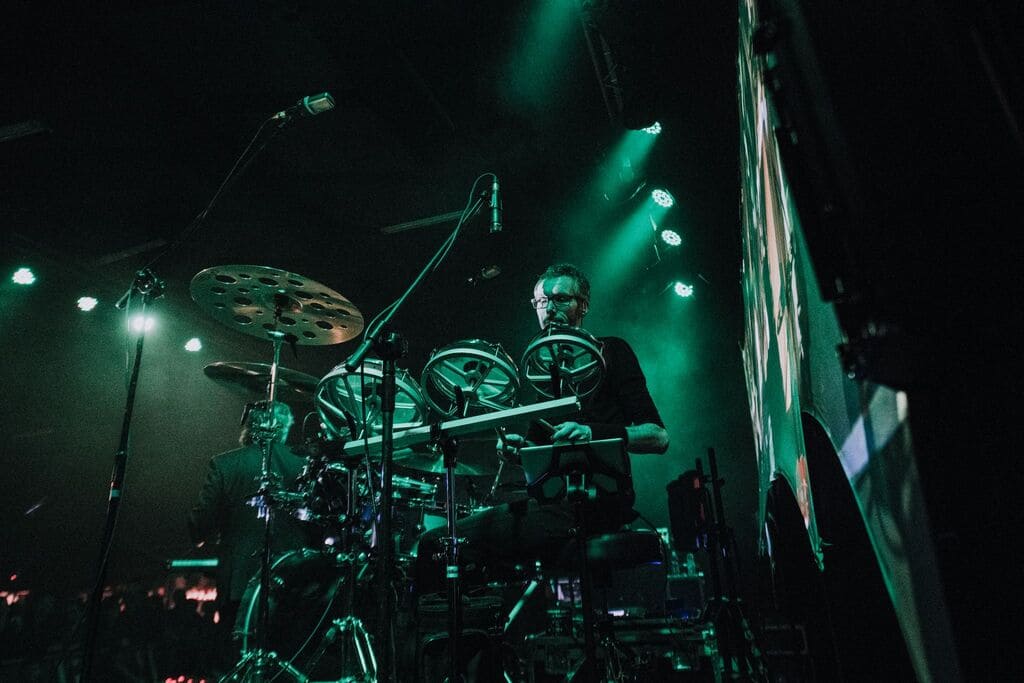
Ricordo che quando ho cominciato ero solito suonare in un piccolo club jazz della zona in cui sono cresciuto. Era dove tutti i miei coetanei ciondolavano e c’erano concerti e una jam session ogni domenica. Il posto era molto piccolo quindi i tavoli più vicini per gli ospiti in generale erano piazzati proprio vicini al charleston del batterista. Ogni volta che dovevo suonare io guardavo dall’altra parte evitando il contatto visivo con chiunque stesse lì. Dopo un po’ cominciai ad analizzare quelle situazioni. Volevo capire perché ero fatto per esibirmi su un palcoscenico e allo stesso tempo mi sentivo così imbarazzato nel doverlo fare.
I vari motivi dello “stage fright”
Le ragioni sono sempre complesse naturalmente. Nel mio caso penso fosse principalmente un insieme dovuto al mio senso di perfezionismo che non mi permetteva ( e non mi faceva perdonare) nessun tipo di sbaglio. L’altro elemento era la mancanza di esperienza e di comprensione riguardo ciò che significa stare su un palcoscenico.
Il perfezionismo è una cosa che ancora mi accompagna. Nel corso degli anni ho imparato a saperlo controllare meglio perché spesso si tende ad evitare di prendere al volo opportunità e rende le performance troppo controllate e meno emozionanti dal punto di vista espressivo. Ma questo è proprio ciò che io voglio: esprimere ciò che sento e condividerlo con il pubblico. Nel mio caso quella pressione che mettevo su me stesso per esibirmi in un modo assolutamente perfetto era dannosa al mio obbiettivo. Ho imparato ad accettare che gli errori capiteranno e che molto di ciò che io identificherei come un errore nel mio modo di suonare non è né udibile, né rilevante per la performance della band.
L’esperienza per vincere l’ansia
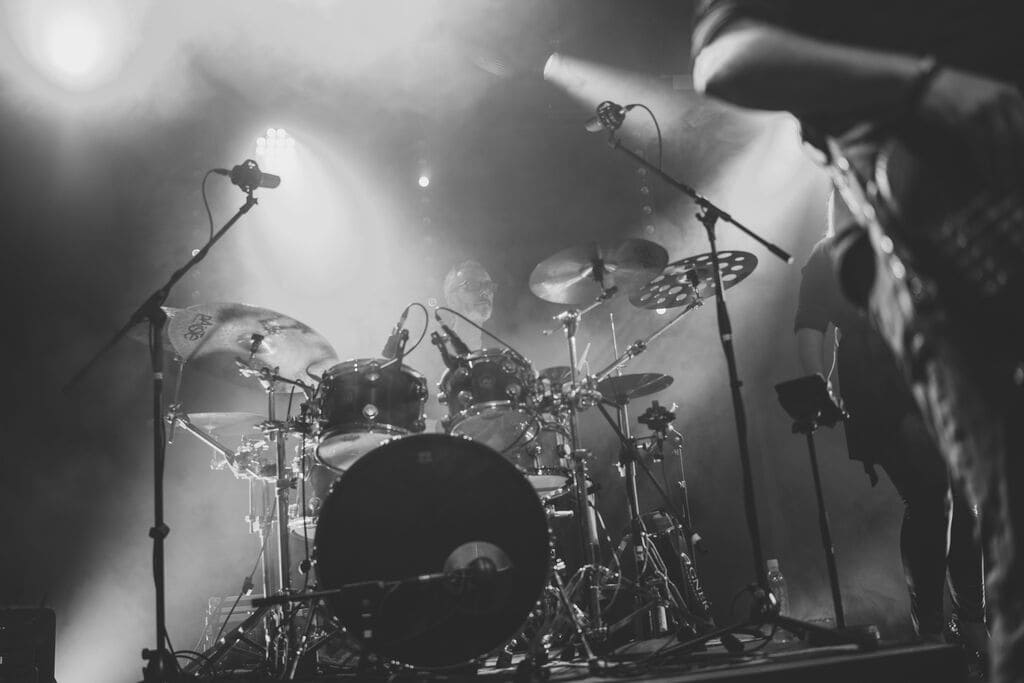
D’altra parte l’esperienza viene negli anni. Ora so che c’è una differenza fondamentale tra come io mi percepisco on stage e come invece mi vedono gli altri. Per chi assiste ad un concerto tutto è parte della performance. Qualsiasi cosa succeda sembra sempre deliberato ed intenzionale eccetto ovviamente gli sbagli clamorosi, come quando qualcosa va davvero storta e tutti se ne accorgono. Ma tutto al di là di quella soglia andrà bene. Questa percezione dell’esterno lavora come una forma di protezione. Finché io non mi liberò di quanto travolto e sotto pressione mi senta on stage, tutto per l’audience sembrerà essere parte integrante dello show. Così ho imparato a fidarmi di questo e anche a lavorare con una certa estensione. Sviluppi in te un certo tipo di personalità da palcoscenico che è capace di avere a che fare con quella situazione ed accettarne le regole ma no sempre quella persona è identica a ciò che sei tu. Questo spiega il perché molti performers attori e musicisti ti diranno che uno dei posti migliori per nascondere il vero se stesso è sul palcoscenico.
Paura da palcoscenico…per molti
So bene che molti colleghi soffrono di stage fright a molti livelli differenti, ognuno trova il proprio modo di aggirarlo per poter fare ciò che amano di più ma ti esaurisce e ci vuole energia e preparazione per combattere contro queste cose. Molti hanno una certa routine a cui si affidano prima di salire on stage. Per alcuni il problema scompare appena iniziano a suonare la prima nota o pronunciano le prime parole. Altri non si sentono sollevati da questa pressione finché lo show non è finito.
Una lezione da parte di Henry Rollins
Una cosa che mi ha insegnato molto riguardo la relazione tra l’audience e la band on stage è stata una storia che ho sentito dal grande Henry Rollins. In uno dei suoi show parlati lui ha affrontato il discorso di alcuni dei suoi peggiori fallimenti on stage come quando ha dimenticato il testo di una canzone o addirittura come quando una volta è crollato per la troppa energia all’inizio di una esibizione.
Lui descrisse come riuscì a venir fuori da queste situazioni e alla fine sostenne che finché riesci a fare in modo che i tuoi errori sembrino una parte dello show “ niente può andare storto”.
Che grandissima frase a cui ripensare prima di cominciare uno show quando senti che la pressione ti sta salendo!
Marc Turiaux: how to face and win “stage fright”
Whenever people ask me about how I feel about playing in a band, being on tour and playing a lot of concerts, my answer is always that I know how lucky I am to be able to do that – because it has been my dream to be in a band from the moment I first picked up my instrument and I can see that it was nothing but a combination of reasons beyond my control and sheer luck that brought me here.
There is a lot I appreciate about the job, but the one thing I probably like most of all is touring. The idea of going to all these different places, meeting different people and always being aware that our music has already gone there before us always fascinated me.
One should think that, given that attitude, playing in front of an audience would be nothing but joy for me. Well, yes and no, because, like so many other musicians, I suffer from stage fright. I’m not a severe case, but I always feel that internal pressure before a show. Thus my relationship with the stage is rather two-sided: I love the adrenaline and how focussed I have to be – but in general I just don’t like to expose myself to an audience like that.
Being on stage at the beginning of the career
That weird mixture of feelings has been with me from the very beginning of my career. I remember that when I started out I used to play in a small jazz club in the area where I grew up. It was where all my peers back then would hang out and there were concerts and a jam session every Sunday. The place was very small, so the nearest tables for the guests basically stood right next to the drummer’s hihat. Whenever it was my turn to play I looked away, avoiding eye contact to anyone out there. After a while I started to analyse these situations, I wanted understand why I was drawn to perform on a stage, while at the same time I felt so awkward about it.
The reasons for the “stage fright”

The reasons are always complex, of course. In my case I guess it was mainly a mixture of my own perfectionism, which didn’t allow (or forgive) myself any kind of mistakes – and lack of experience and understanding about what it means to be on stage.
The perfectionism is still with me, of course. Over the years I learned to handle it better, especially because you often tend to avoid taking chances and it makes performances too controlled and less emotionally expressive. But actually that’s what you want: to express what you feel and share it with the audience. In my case that pressure I put on myself to perform absolutely flawlessly was detrimental to my goal. I learned to accept that mistakes will happen and that a lot of what I would identify as a mistake in my playing is either not audible or not relevant to the band’s performance.
The experience helps to win anxiety
The experience on the other hand came with years of playing. I learned that there is a fundamental difference between how I perceive myself on stage and how the audience sees me. For someone watching a concert, everything is part of the performance. Whatever happens seems deliberate and intentional – except for the obvious and awkward train wrecks, when something goes really wrong so everyone can see it. But everything below that threshold will be fine. That outward perception works as a form of protection: as long as I don’t give away how overwhelmed and under pressure I feel on stage, everything will seem to be part of the show for the audience. So I learned to rely on that and even work with it to a certain extent. You develop some kind of stage persona that is able to deal with the situation and play to its the rules – but that is not always identical to who you are. That’s why many performers, actors and musicians will tell you that one of the best places to hide your inner self is on a stage.
Many musicians suffer from “stage fright”
I know that many colleagues suffer from stage fright in very different degrees. Everyone finds their way around it, so they can do what they love best. It’s exhausting and it takes energy and preparation to deal with it. Many have certain routines that they go through before they go on stage. For some it’s gone as soon as they play the first note or say the first words, others will only be relieved of the pressure when the show is over.
What Henry Rollins said
One thing that taught me a lot about that relationship between an audience and the band on stage was a story I heard by the great Henry Rollins. In on of his recorded talking shows he speaks about some of his worst failures on stage, when he forgot the lyrics to a song or even knocked himself out once due to his frantic energy at the start of a show. He described how he got out of these situations and in the end he claimed that, as long as you make it look like it’s part of the show, “nothing can go wrong up here”. What a great line to think of before you start a show and you feel the pressure rising.
Offerte Di Amazon Prime
- ★ Bassi Profondi e Suono Coinvolgente: I nostri...
- Cassa Bluetooth Potente. Suono incredibile,...
- 2025 Nuova Tecnologia Bluetooth 5.4: Cuffie...
- SUONO DI ALTA QUALITÀ, SU MISURA PER TE: queste...




































